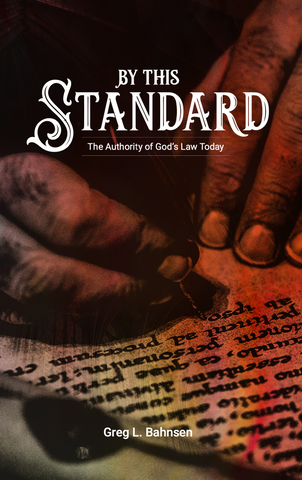Gary responds to a video clip of Bart Ehrman about various laws from Leviticus.
All of life is ethical, and all of the Bible is permeated with a concern for ethics. Unlike the organization of an encyclopedia, our Bible was not written in such a way that it devotes separate sections exclusively to various topics of interest. Hence the Bible does not contain one separate, self-contained book or chapter that completely treats the subject of ethics or moral conduct. To be sure, many chapters of the Bible (like Exodus 20 or Romans 13) and even some books of the Bible (like Proverbs or James) have a great deal to say about ethical matters and contain very specific guidance for the believer’s life. Nevertheless, there will not be found a division of the Bible entitled something like “The Complete List of Duties and Obligations in the Christian Life.” Instead, we find a concern for ethics carrying through the whole word of God, from cover to cover— from creation to consummation.
This is not really surprising. The entire Bible speaks of God, and we read that the living and true God is holy, just, good, and perfect. These are attributes of an ethical character and have moral implications for us. The entire Bible speaks of the works of God, and we read that all of His works are performed in wisdom and righteousness—again, ethical qualities. The world which God has created, we read, reveals God’s moral requirements clearly and continuously. History, which God governs by His sovereign decree, will manifest His glory, wisdom and justice. The apex of creation and the key figure in earthly history, man, has been made the image of this holy God and has God’s law imbedded in his heart. Man’s life and purpose take their direction from God. Every one of man’s actions and attitudes is called into the service of the Creator—motivated by love and faith, aimed at advancing God’s glory and kingdom. Accordingly the entire Bible has a kind of ethical focus.
To redeem man, restore him to favor, and rectify his wayward life in all areas, God promised and provided His own Son as a Messiah or Savior. Christ lived a life of perfect obedience to qualify as our substitute, and then He died on the cross to satisfy the justice of God regarding our sin. As resurrected and ascended on high; Christ rules as Lord over all, bringing all opposition into submission to His kingly reign. He has sent the Spirit characterized by holiness into His followers, and among other things the Holy Spirit brings about the practice of righteousness in their lives.

By This Standard
God's Law is Christianity's tool of dominion. This is where any discussion of God's law ultimately arrives: the issue of dominion. Ask yourself: Who is to rule on earth, Christ or Satan? Whose followers have the ethically acceptable tool of dominion, Christ's or Satan's? What is this tool of dominion, the Biblically revealed law of God, or the law of self-proclaimed autonomous man? Whose word is sovereign, God's or man's?
Buy NowGary responds to a video clip of Bart Ehrman about various laws from Leviticus. Ehrman tries to equate same-sex relationships with wearing clothes of mixed fabrics because they happen to be stated near each other. His tactics are typical in the non-Christian bubble of atheists and skeptics. Gary shows how his “argument” doesn’t actually hold water.

